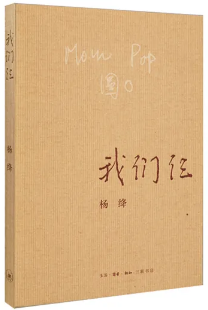多喝果汁让人更健康?美国一项最新研究可能会颠覆你的认知。上周五发表的一项最新研究报告称,即便是100%的纯果汁也会构成健康风险。
Many sugar-sweetened beverages have little to no nutritional value and lots of calories, and their harmful health effects have been well-documented. Now, a study links drinking too many sugary beverages -- and even 100% natural fruit juices -- to an increased risk of early death.
很多含糖饮料基本没有营养价值,而且富含卡路里,有充足的证据说明它们的健康危害。但一项最新研究表明,喝太多含糖饮料,甚至是纯天然果汁,会增加早逝风险。
well-documented ['wel'dɔkjumentid]:adj.证据充分的
Specifically, drinking an excessive amount of fruit juice could lead to an increased risk of premature death ranging from 9% to 42%, according to the study, published Friday in the journal JAMA Network Open.
一项于5月17日发表在《美国医学会杂志•网络开放》上的研究表明,特别是过量饮用果汁可能会将早逝几率增加9%至42%。
Overall, the sugars found in orange juice, although naturally occurring, are pretty similar to the sugars added to soda and other sweetened beverages, the study suggests.
研究表明,虽然总体来看,橙汁中的糖是天然的,但仍与汽水等其他含糖饮料的糖十分相似。
"Sugary beverages, whether soft drinks or fruit juices, should be limited," Jean A. Welsh, a co-author of the study and an assistant professor in the Department of Pediatrics at Emory University in Atlanta, wrote in an email.
研究报告作者之一、美国亚特兰大埃默里大学儿科学助理教授吉恩•A•威尔士说:“含糖饮料,无论是软饮料还是果汁,都应该加以限制。”
增加心血管疾病风险
Seven US cities, including New York and most recently Philadelphia, have levied taxes on sweetened drinks with added sugar in an effort to reduce consumption.
美国纽约等7个城市的政府已对添加糖的甜饮料进行征税,控制人们消费,最近费城也开始对此征税。
The new study defined "sugary beverages" as both sugar-sweetened thirst-quenchers, like soda and fruit-flavored infusions, and 100% natural fruit juices that have no added sugar. So how does fruit juice stack up against soda?
这份新研究将汽水和水果味饮料等饮品、以及100%无添加糖的天然果汁一同定义为“含糖饮料”。
"Previous research has shown that high consumption of sugars like those in soft drink and fruit juices is linked to several cardiovascular disease risk factors," Welsh explained.
威尔士解释说:“此前的研究表明,从软饮料和果汁中摄入太多糖分与数个心血管疾病风险因素相关。”
Obesity, diabetes and elevated triglycerides (a type of fat found in the blood) are among the risk factors linked to excessive sugar intake. "Few studies have been able to look at how this consumption might impact mortality risk," she said.
肥胖症、糖尿病和甘油三酯(血液中的一种脂肪)升高是与摄入过多糖分相关的风险因素。她说:“之前的研究基本没有涉及这种糖分摄入会构成死亡风险。”
Welsh and her coauthors analyzed data from 13,440 adults 45 and older, nearly 60% men and almost 71% of them overweight or obese.
威尔士与其同事分析了13440名45岁及以上成年人(近60%为男性,其中近71%为超重或肥胖)的相关数据。
People who consumed 10% or more of their daily calories as sugary beverages had a 44% greater risk of dying due to coronary heart disease and a 14% greater risk of an early death from any cause compared with people who consumed less than 5% of their daily calories as sugary beverages, the study showed.
研究显示,与每日摄入的卡路里中不到5%来自于含糖饮料的人们相比,每日摄入的卡路里中10%以上来自含糖饮料的人们死于冠心病的风险要高出44%,因任何原因早逝的风险高出14%。
Each additional 12-ounce serving of fruit juice per day was associated with a 24% higher risk of death from any cause, and each additional 12-ounce serving of sugary beverages per day was associated with an 11% higher risk.
每天每增加12盎司(约合355ml)的果汁摄入量,任何原因导致的死亡风险都将增加24%;每增加12盎司的含糖饮料,风险会增加11%。
建议的果汁摄入量是多少?
This is one of the first studies to examine the relationship between sugary drinks, including 100% fruit juices, and early death, wrote Marta Guasch-Ferré, a research scientist in the Department of Nutrition at Harvard T.H. Chan School of Public Health and Dr. Frank B. Hu, a professor of medicine at Harvard Medical School, in an editorial published alongside the new study.
哈佛大学陈曾熙公共卫生学院营养学研究科学家玛尔塔•瓜施-费雷及哈佛医学院教授弗兰克•B•胡博士在与这项新研究一同发表的一篇文章中写道,这是研究包含纯天然果汁在内的含糖饮料与早逝之间关系的最早的研究之一。
"Although fruit juices may not be as deleterious as sugar-sweetened beverages, their consumption should be moderated in children and adults, especially for individuals who wish to control their body weight," Guasch-Ferré and Hu wrote.
两位教授还写道:“尽管果汁可能不像加糖饮料有那么多害处,但儿童和成年人还是应该节制果汁的摄入量,尤其是那些希望控制体重的人。”
deleterious [,delɪ'tɪərɪəs]:adj.有毒的,有害的
The recommendations for kids between 1 and 6 years old are to limit fruit juice consumption to 6 ounces per day, while children 7 years and older, teens and adults should limit fruit juice to 8 ounces per day, according to the American Academy of Pediatrics and the Dietary Guidelines for Americans.
美国儿科学会和美国饮食指南建议,1到6岁儿童对果汁的摄入量应控制在每天6盎司(约合177ml)之内,而7岁及以上儿童、青少年及成人每天摄入量应限制在8盎司(约合237 ml)之内。
"Further research is needed to examine the health risks and potential benefits of specific fruit juices," Guasch-Ferré and Hu said.
两位教授写道:“特定果汁对健康造成的风险及其潜在益处还需进一步研究。”
Welsh said we need to consider both fruit juices and sugar-sweetened beverages when we think about how much sugar we consume each day. Between the two, she tipped the scales in favor of fruit juice: "Given its vitamin and mineral content, fruit juice in small amounts may have a beneficial effect that isn't seen with sodas and other sugar-sweetened beverages."
威尔士说,在考虑我们每天摄入多少糖分时,我们需要考虑到果汁和含糖饮料。在这两者之间,她更偏向于果汁,“果汁中富含维生素和矿物质,少量果汁对健康有益,而汽水和其他含糖饮料没有这种益处。”

新年伊始,听说有好多同学声称自己去年的读书li...

不知是不是因为今年疫情的缘故,总觉得时间过得...

2020年即将过去,本年度的【好书荐读】系列也迎...
